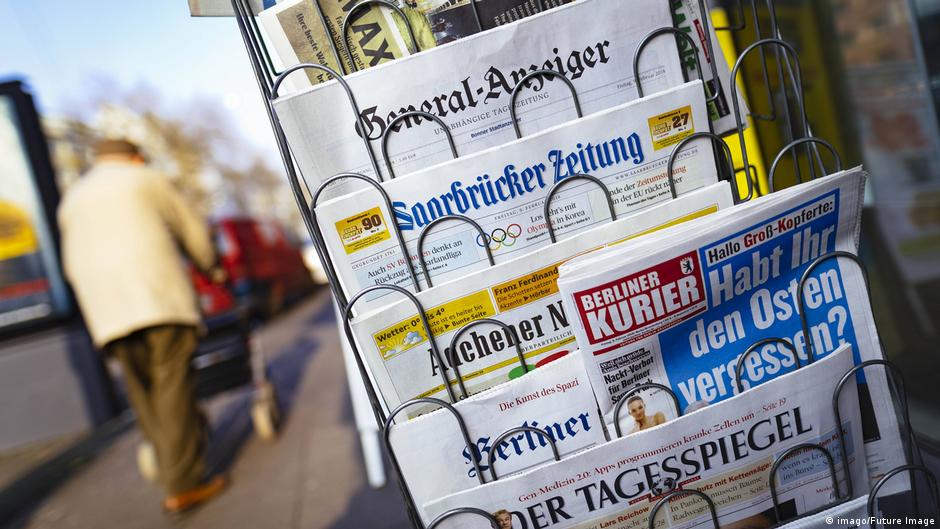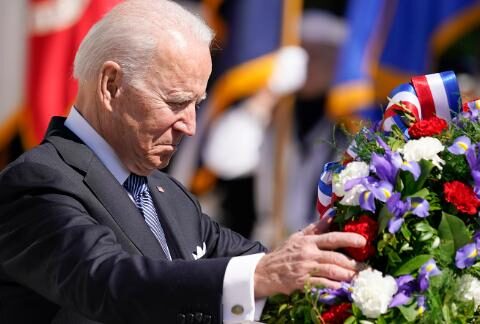By Anoa Change
Trevor Noah got a lot right in his remarks at the White House Correspondent’s Dinner. In his closing comments, Noah reminded journalists of their role in upholding and protecting Democracy. And while he may have ruffled a few feathers with his statement about journalistic integrity and our commitment to upholding Democracy, Noah is right.
The press and those who publish our media need to do some soul searching about what side they are on. Tuesday, May 3, marked World Press Freedom Day. And as the Supreme Court is poised to possibly overturn Roe v. Wade, journalists need to step up and stand in the gap once again.
Initially created in 1993 following a recommendation from a UNESCO general conference, the day is as much for governments to reflect on the importance of a free press as it is for media professionals to reflect on their role in protecting freedom. For Black journalists upholding equity and justice and exposing attacks on Democracy have been critical to our advancement as a people.
Ten years ago, journalists like Kirsten West Savali, a movement-aligned writer and Black mother, helped shape my emerging worldview as a young mother and professional trying to figure out my place in the world. I started out with a small little mom blog, musing about my thoughts and experiences as a Black mother, little did I know that I would be following in
A few months ago, Savali and I spoke about her work as a journalist and mother, particularly regarding the tenth anniversary of Trayvon Martin’s killing.
“While I am honored to be recognized as a movement journalist who has been able to provide platforms for organizers and activists to share their work with national audiences, first and foremost, I am a Black mother of three sons, two of whom are old enough to have experienced the brute force of structural white violence in this country,” she said. “Black journalists owe it to our communities to not do nothing. We do not have the luxury of being bystanders to violence and injustice. We cannot afford to be apathetic and frame it as so-called objectivity.”
Tracie Powell, the founder of the Pivot Fund, is building the financial infrastructure to support independent Black media outlets to launch and thrive. Ten years ago, Powell wrote an article describing how the Trayvon Martin’s killing ushered in a “new guard” among Black journalists. She said that while various news outlets apologized post-George Floyd’s murder for how they covered Black and other communities of color, the attitudes haven’t changed.
“The more things change the more they stay the same,” she said. “The Pivot Fund is in business to make sure that [mainstream outlets] don’t go back to business as usual. That they continue to be reminded about journalism’s mission to afflict the comfortable and comfort the afflicted.”
Powell said it’s paramount that journalism “live up to its mission in terms of checking power and holding power to account.”
And Black media makers like Cierra Hinton are doing just that. Executive director and Publisher of the southern-based Scalawag Magazine, Hinton is a part of a team providing space for fearless reporting that centers on the experiences and interests of Black and other folks of color in the south. At the heart of Scalawag’s work is community-driven journalism that works alongside impacted communities instead of just reporting about them. A recent project on prison reporting worked with writers “on the inside” to tell their own stories.
With battles for voting rights, abortion access and economic justice to name a few it’s important for the Black press to center Democracy in our coverage and how these issues will impact our communities. Noah’s challenge to the journalism elite of Washington D.C. and journalists all across the country requires a value check. It’s time to shift toward a service-oriented approach to delivering the news that informs and engages, not simply outrages at the expense of our communities themselves.
“Mainstream media has not simply been complicit in the mythologizing of this nation, but co-authors in creating a narrative that allows white supremacy to persist,” Savali said. “It has platformed, facilitated, and insulated white violence in this country. Black journalists had to push back against the sanitization of our truth-telling, who have had to fight every step of the way to expose a nation that has always lied about the depth and caliber of its character.”


